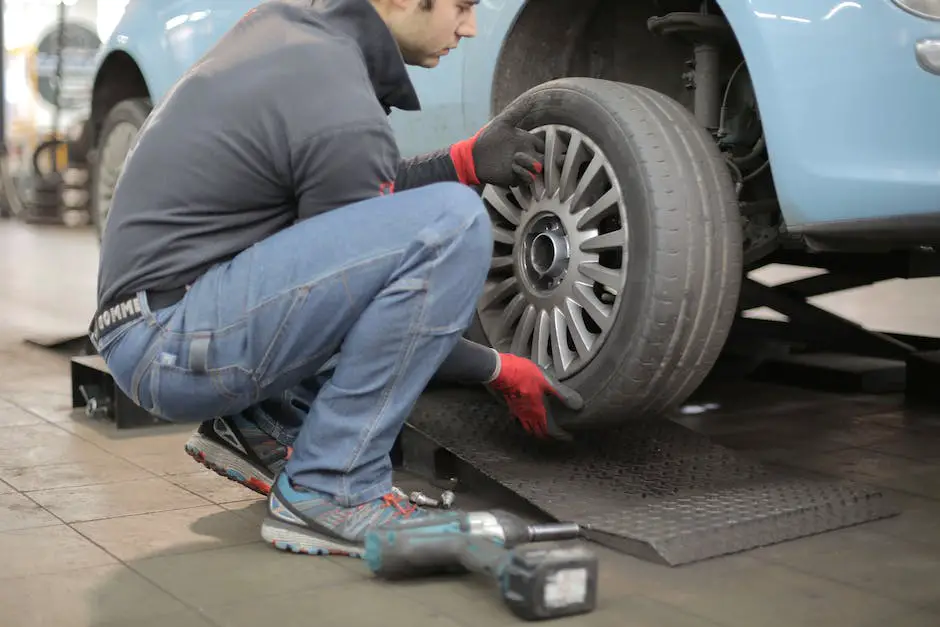Understanding what happens under the hood of our vehicles can often seem like deciphering a foreign language. However, when technical codes appear, addressing the issue promptly can save much time, money, and stress down the road. One such code Nissan drivers need to be aware of is the P0455 code, a problem related to the Evaporative Emission Control System (EVAP). This important component in your vehicle prevents harmful fuel vapors from the gasoline tank from being released into the atmosphere. Recognizing this code and understanding what it means can ensure your vehicle remains in top performance and minimizes its environmental footprint.
P0455 Code on Your Nissan Vehicle: Here’s What It Means!
Whether you drive an Altima, Sentra, Pathfinder, Maxima, or any other Nissan vehicle, If you drive a Nissan and have observed the enigmatic P0455 trouble code pop up on your OBD-II scanner, it’s essential to understand exactly what it means. Today, let’s deep-dive into the issue to remedy it right away. Rest assured; this is not a catastrophic error – but it does deserve prompt attention.
In the world of OBD-II (On-Board Diagnostics II) codes, the P0455 code signals an issue with the evaporative emission control system. Specifically, an unusually large leak has been detected. As previously mentioned, this system prevents damaging emissions from escaping into the atmosphere, crucial for both your car and our environment at large.
The key culprit? Usually, it’s as simple as a loose gas cap. That’s right! Before we opt for advanced diagnostics, inspect the gas cap. If it’s loose, tighten it; if it looks damaged or worn, consider getting a new one. In many cases, this rectifies the error – it’s often just a matter of improper sealing, throwing the system off balance.
If it isn’t the gas cap, don’t fret – here’s what else it could be:
- Faulty EVAP System Hoses: The hoses in your EVAP system can crack or get dislodged over time. These should be inspected for potential damage.
- Damaged Charcoal Canister: The Charcoal Canister, an EVAP system component, captures fuel vapors. If it’s damaged, it can cause the P0455 code to display. It may need to be replaced.
- Faulty Purge Valve or Vent Valve: The Purge Valve controls the evacuation of fuel vapors from the charcoal canister, and the Vent Valve allows outside air to the EVAP system to aid in purging. In case of faulty valves, they might need to be fixed or replaced.
- Faulty Pressure Sensor: The fuel tank pressure sensor identifies the amount of pressure in the EVAP system. If this sensor is faulty and not identifying the correct pressure levels, it may signal the P0455 code.
If the issue persists after checking the gas cap, it may be prudent to consider professional diagnostic testing. Most modern scan tools can test the operation of the Purge Valve, Vent Valve, and even the functioning of the pressure sensor. A qualified mechanic should be able to identify the problem component swiftly, saving you the tirade of endless online research.
Remember, though not urgently dangerous, frequent ignoring of the P0455 code can lead to a decrease in fuel efficiency, contribute to atmospheric pollution, and possibly cause further damage to the vehicle in the long run. Prompt and effective action is the way to go!
Don’t overlook what your car communicates with you. The P0455 code doesn’t have to be daunting. Instead, see it as an opportunity to understand your vehicle better and use technology to solve a problem. And remember, many mysteries are simply solved with a twist – of the gas cap, that is.

Deeper Factors Causing a P0455 Code in Your Nissan
Let’s dive into analyzing some of the less common, but equally significant causes of the annoying P0455 code that Nissan owners often encounter.
A primary source often overlooked is a broken leak detection pump. This crucial part of the EVAP system, responsible for pressurizing the system to check for leaks, could be malfunctioning.
There’s also the possibility of a malfunctioning fuel tank sending unit. The unit communicates the amount of fuel present in the tank to your vehicle’s computer. If the unit fails, it may interfere with the proper functioning of the EVAP system, triggering a P0455 code.
Similarly, a disrupted Fuel Temperature Sensor (FTS) might be the hidden source of your woes. Directly linked to the performance of the EVAP system, a faulty or even failing FTS can throw a P0455 code.
Don’t disregard the lesser-known On-board Refueling Vapor Recovery (ORVR) system that can also throw a P0455 code. Working in unity with the EVAP system, the ORVR system captures harmful gas vapors from the fuel tank and sends them to the charcoal canister for storage. A malfunction within this unit could allow vapors to escape, causing your vehicle’s computer to register a system leak.
Don’t mistake the EVAP system as a mere collection of tubes and valves, it’s a display of engineering genius in the form of interconnected technologies. Each component, down to the malfunction indicator lamp, plays a significant role in ensuring an efficient and clean-running vehicle. A thorough grasp of these multiple factors can potentially save you from unnecessary trips to the service center or coping with false diagnosis. With this understanding, we can appreciate the complexity of the problem and take rational steps towards a solution.
And now, back to your ride. Remember, technology might complicate things, but it is also the most practical problem solver.
How to Repair and Clear the P0455 Code
Next, we move on to focusing on how you can fix the P0455 code and reset the check engine light on a Nissan. Here’s a step-by-step guide:
- Diagnosing The Issue: Since the potential causes are already identified, using a professional diagnostic tool, like an OBD2 Scanner, is vital. These tools provide live data of your EVAP system’s workings and help to pinpoint the likely issue.
- Check Physical Components: Physically inspect the gas cap, EVAP hoses, the charcoal canister, purge valve, vent valve, and the pressure sensor. Look for obvious signs of damage such as holes, excessive wear, disconnected parts, or brittle areas.
- Check the Leak Detection Pump: If the aforementioned components are in good condition, check the leak detection pump. This part of the EVAP system verifies that the system is leak-free, and a lint or grit-affected pump could be the root of your problem.
- Inspect the Fuel Tank Sending Unit: Few people realize that a malfunctioning fuel tank sending unit can also cause the P0455 code. Ideally, this involves checking for defective areas that could be allowing excess fumes to escape.
- Check the Fuel Temperature Sensor (FTS): A faulty or disrupted Fuel Temperature Sensor could be mirroring an EVAP system leak. This sensor monitors the fuel temperature inside the fuel tank and communicates with the Engine Control Module (ECM).
- Inspect the ON-Board Refueling Vapor Recovery (ORVR) system: It refers to the EVAP component that traps fuel vapors during refueling to prevent their escape into the atmosphere. A malfunctioning ORVR system can lead to an erroneous P0455 code detection.
- Replace the Faulty Parts: Once the defective component is identified, the most prudent step is to replace it. Ensure the replacement parts are original, reliable, and tailored for your Nissan model. Note: unless you are a relatively savvy DIY-er, we usually recommend having a certified mechanic perform the repair(s).
After successfully fixing the faulty component, it’s time to clear the error code and reset the check engine light. This resetting process helps your vehicle’s system understand that the issue has been rectified.
Follow these steps:
- Connect the OBD2 scanner to the On-Board Diagnostics II port located under your Nissan’s dashboard.
- Turn on your vehicle but do not start the engine.
- On your OBD2 scanner, select the “Erase Codes” function.
Following this process should reset your check engine light. If the light turns back on after the reset, it is a sign that the root problem has not been fully addressed, and a further diagnosis may be necessary.
Cost to Repair the P0455 Code:
We have researched a couple trusted sources and combined the average data for the costs to fix the P0455 code. Below is a list of common issues and the prices to repair them (including parts and labor). Note: the costs vary widely depending on what model Nissan you have AND the local mechanic labor rates (which are getting pretty ridiculous in most areas!):
New Gas Cap: about $15 (You can check prices HERE)
Replace the EVAP System Hoses: $195 – $425
Replace the Charcoal Canister: $120 – $500
Replace the Purge Valve: $125 – $340
Replace the Vent Valve: $140 – $295
Replace the Fuel Pressure Sensor: $175 – $350
Sources:
To conclude, addressing the P0455 code is more than a routine task – it requires acute technological understanding, problem-solving, and attention to detail.

Being a proactive and informed car owner is more important than just knowing how to operate the vehicle. It’s also about understanding the warning signs and signals your car provides for you. When it comes to the P0455 code, drivers need to know that the problem lies with the Evaporative Emission Control System (EVAP). Whether it’s a loose gas cap, a malfunctioning purge control valve, or a failed vent control valve, identifying the root cause is your first step. After that, moving forward with necessary repairs and clearing the code from your Nissan’s computer system ensures a smooth and efficient driving experience. Stay informed, stay alert, and keep your vehicle’s performance at its best!